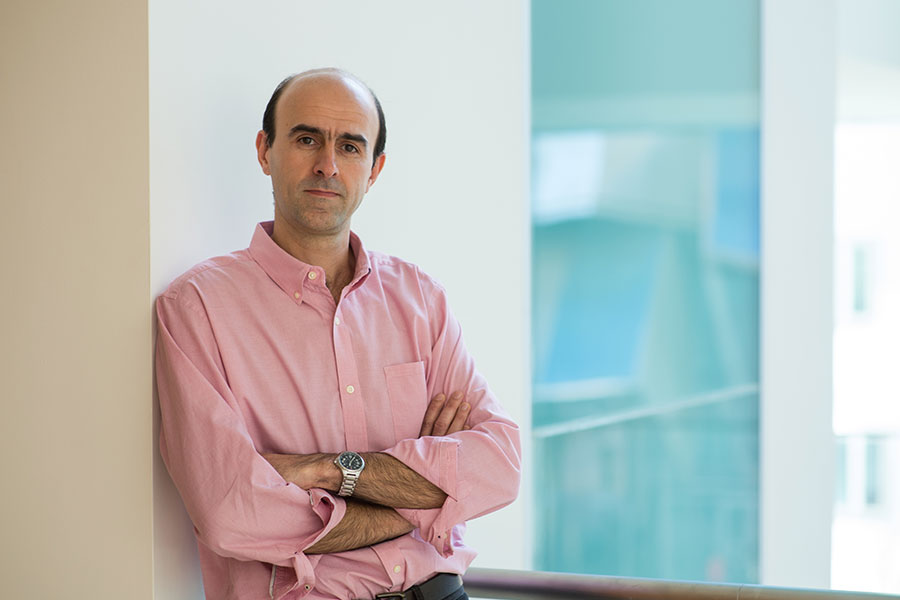Mehrdad Jazayeri to join McGovern Institute faculty
New faculty member will study how neurons and circuits generate dynamic patterns of activity that result in flexible, goal-directed behavior.

We are pleased to announce the appointment of Mehrdad Jazayeri as an Investigator at the McGovern Institute for Brain Research. He will join the institute in January 2013, with a faculty appointment as assistant professor in MIT’s Department of Brain and Cognitive Sciences.
Complex behaviors rely on a combination of sensory evidence, prior experience and knowledge about potential costs and benefits. Jazayeri’s research is focused on the neural mechanisms that enable the brain to integrate these internal and external cues and to produce flexible goal-directed behavior.
In his dissertation work with J. Anthony Movshon at New York University, Jazayeri asked how the brain uses unreliable sensory signals to make probabilistic inferences. His work led to a simple computational scheme that explained how information in visual cortical maps is used for a variety of visual perceptual tasks. Later, as a Helen Hay Whitney postdoctoral fellow, he began to investigate the role of prior experience on perception. Working in the laboratory of Michael Shadlen at the University of Washington, he used a simple timing task to show that humans exploit their prior experience of temporal regularities to make better estimates of time intervals. Using a rigorous mathematical framework — Bayesian estimation — this work provided a detailed model for quantifying how measurements, prior expectations and internal goals influence timing behavior.
Jazayeri then turned to monkey electrophysiology to study how neurons process timing information and how they combine sensory cues with prior experience. For this work, he taught monkeys to reproduce time intervals, as if keeping the beat in music. The animals were provided with beats 1 and 2 and were rewarded for producing a third beat at the correct time. By recording from sensorimotor neurons in the parietal cortex during this task, Jazayeri showed that the pattern of activity is very different during the measurement and production phases of the task, even though the interval is the same. Moreover, he found that the response dynamics of parietal neurons were shaped not only by the immediate time cues but also by the intervals monkeys had encountered in preceding trials.
Building on his previous work, Jazayeri will pursue two long-term research themes at MIT. One line of research will examine how brain circuits measure and produce time, an ability that is crucial for mental capacities such as learning causes and effects, “intuitive physics,” and sequencing thoughts and actions. The other line of research will exploit timing tasks to understand the neural basis of sensorimotor integration, a key component of cognitive functions such as deliberation and probabilistic reasoning.
Understanding complex behaviors such as flexible timing or sensorimotor integration requires methods for manipulating the activity of specific structures and circuits within the brain. Optogenetics, the ability to control brain activity using light, has emerged as a powerful tool for such studies. In a recent collaboration with Greg Horwitz at the Univeristy of Washington, Jazayeri reported the first successful application of optogenetics to evoke a behavioral response in primates. Motivated by this proof-of-principle experiment, Jazayeri plans to combine the traditional tools of psychophysics and electrophysiology with optogenetic manipulations to characterize the circuits that control timing and sensorimotor integration in the primate brain.
Originally from Iran, Jazayeri obtained his B.Sc in Electrical Engineering from Sharif University of Technology in Tehran. He received his PhD from New York University, where he studied with J. Anthony Movshon, winning the Dean’s award for the most outstanding dissertation in the university. After graduating, he was awarded a Helen Hay Whitney fellowship to join the laboratory of Michael Shadlen at the University of Washington, where he has been since 2007.




